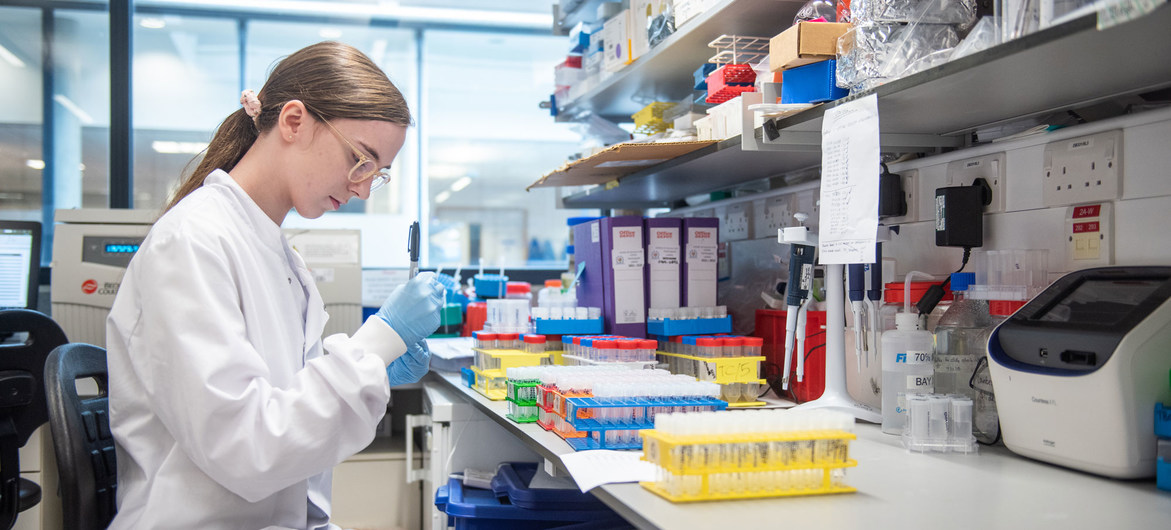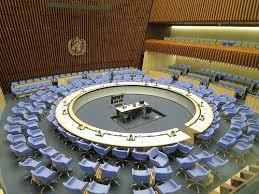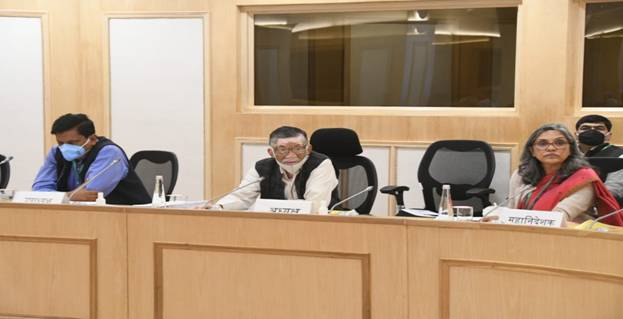A World Health Organization (WHO) expert panel countered concerns over the efficacy of the AstraZeneca COVID vaccine on Wednesday, insisting that “it’s the right thing to do” to use it – even in countries where variants had surfaced.
“Even if you have the circulation of a variant in a country, there is no reason that we see for now, not to use the AstraZeneca vaccine as indicated, to be able to reduce the levels of severe disease in that population”, said Dr Alejandro Cravioto, Chair of the Strategic Advisory Group of Experts on Immunization (SAGE).
The development follows the recent release of data from a study in South Africa indicating that the AstraZeneca jab provided little protection against a variant of the new coronavirus among older people.
At a press conference in Geneva, SAGE Executive Secretary, Dr Joachim Hombach, described that study as “relatively modest”, while Dr Cravioto added that few over 65s had taken part in it.
Dr Kate O’Brien, WHO’s head of immunization, said that the South African study’s findings were “inconclusive, albeit demonstrating a low efficacy against mild and moderate disease”.
Absence of data
Most important was the “absence of evidence from that trial over whether the AZ product has efficacy against severe disease, hospitalisation and death”, she said, “and that is the outcome of most interest and most impact for early roll-out of vaccines”.
From research into the new coronavirus’s response to vaccines in trials so far, Dr O’Brien explained that the highest impact had been among the most poorly patients.
“For all of the vaccines there is a gradient of response”, she said. “The highest response is against the most severe disease and somewhat lower efficacy for moderate and then further down for milder disease…this is not unique to coronavirus vaccine.”
No upper age limit
The vaccine should be administered in two doses to people over 18 years old “without any upper age limit”, Dr Cravioto said, adding that the “best” interval between the first and second doses was eight to 12 weeks, to ensure an increased immune response.
Although the vaccine is “safe”, the SAGE Chair said that owing to a lack of available data, it was not yet possible to make a recommendation about whether the vaccine should be given to all pregnant or breastfeeding women.
That decision should be taken on an individual basis by a general practitioner, he added.
And because of a lack of available vaccines and the need to continue limiting the potential for the virus to spread, Dr. Cravioto advised that international travelers should not be given the jab.
No time to lose
Urging countries to use the AstraZeneca vaccine – particularly those for whom it would be their sole protection against the virus – WHO Chief Scientist, Dr Soumya Swaminathan, insisted that there was no time to lose.
“The vast majority of countries that are still waiting to introduce a vaccine – and this vaccine may be the first one – certainly the benefits will far outweigh the risks.”
Dr Swaminathan also issued a call for greater genomic monitoring of COVID-19 transmission in initiatives including the Africa Pathogen Genomics Initiative.
“In many other countries the situation may be that with very limited sequencing they’ve been able to detect this variant, but they don’t know the spread. And therefore, they’re very cautious in making decisions based on very limited data.”
To date, there have been 106,555,206 confirmed cases of COVID-19, including 2,333,446 deaths, reported to WHO.
Vaccine solidarity call
In a related development, the heads of the WHO and UN Children’s Fund UNICEF on Wednesday made an urgent appeal for vaccine solidarity.
Tedros Adhanom Ghebreyesus and Henrietta Fore called on leaders “to look beyond their borders and employ a vaccine strategy that can actually end the pandemic and limit variants”.
Of the 128 million doses administered so far, more than three-quarters of vaccinations have been in just 10 of the wealthiest nations, they said.
This is a “self-defeating strategy” that will cost lives and livelihoods, the UN officials said, before warning that it would also give the virus the chance “to mutate and evade vaccines”, while also undermining economic recovery.
So that vaccine rollouts can begin in all countries of the world in the first 100 days of 2021, the WHO and UNICEF chiefs said it was imperative that health workers who have been on the frontlines of the pandemic in lower and middle-income settings should be protected first.
They also called for the COVID response initiative known as Access to COVID-19 Tools Accelerator (ACT) to be fully funded, to help developing countries to deploy vaccines.
If fully funded, the ACT Accelerator could return up to $166 for every dollar invested, the UN officials maintained.











